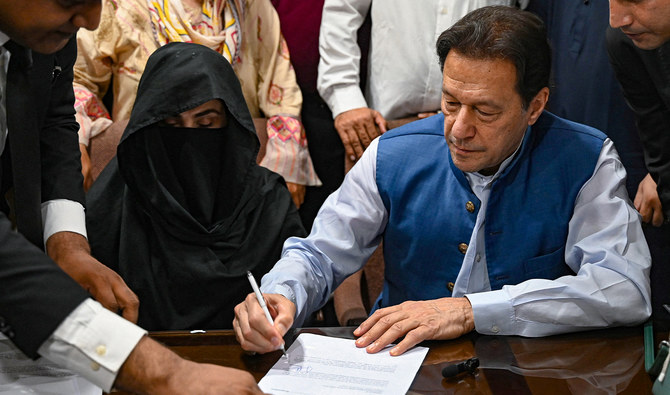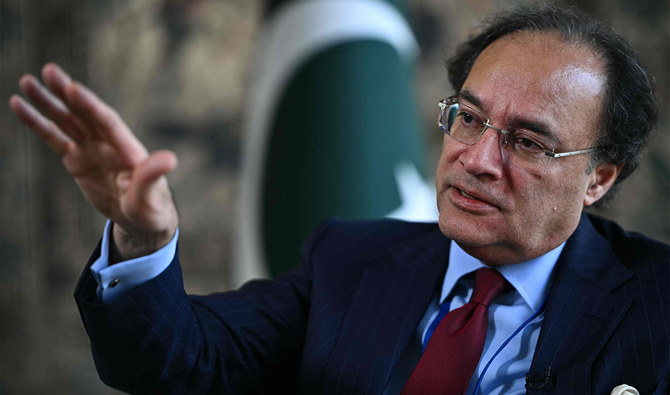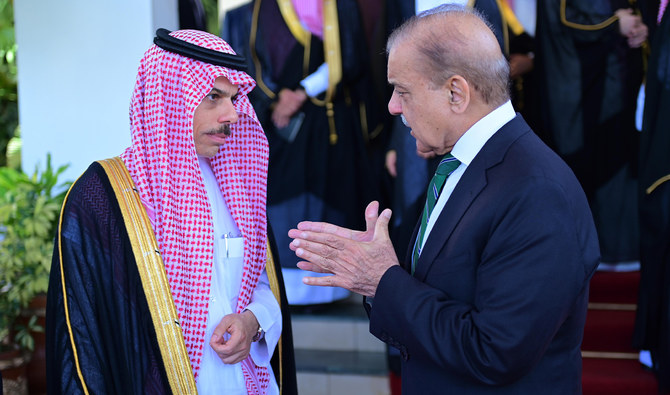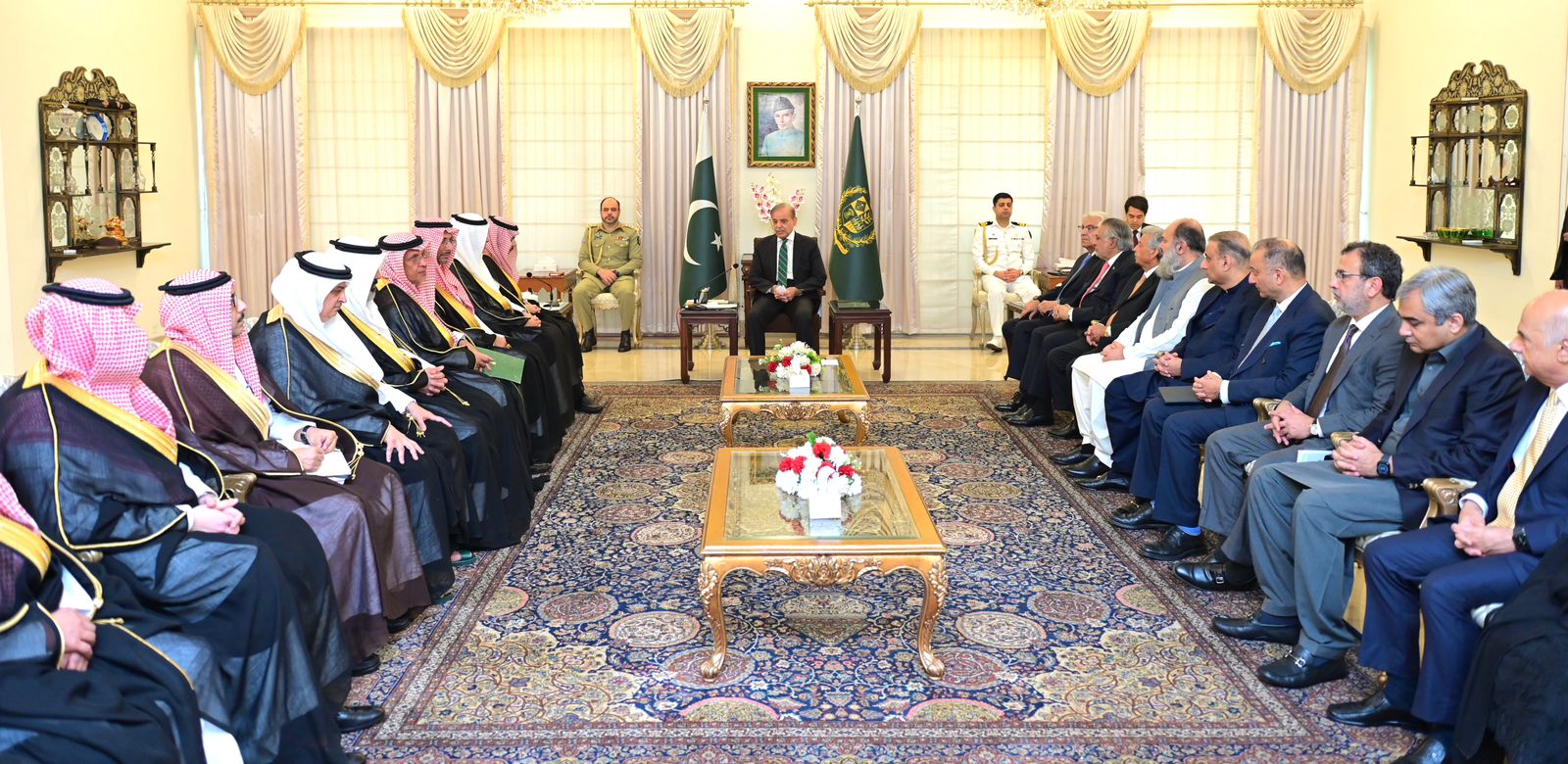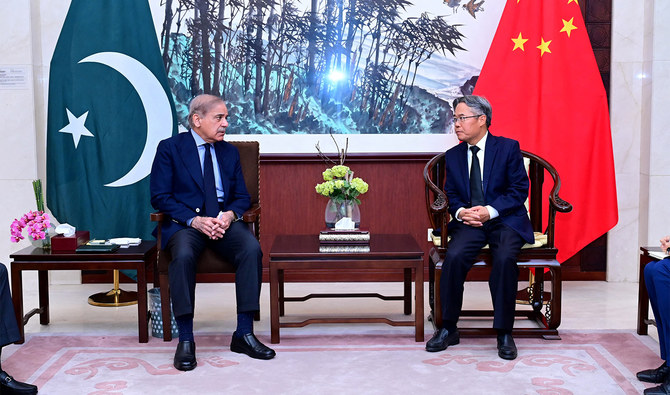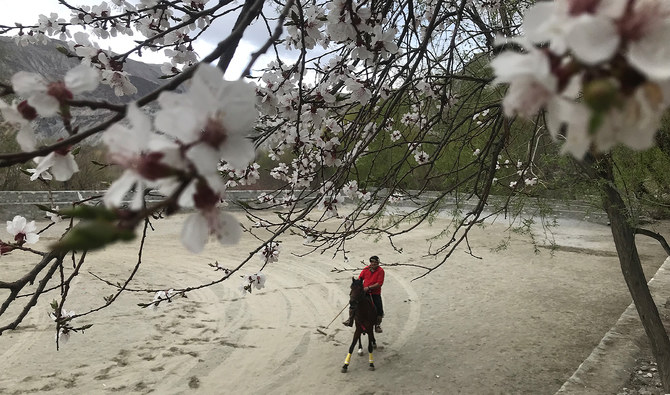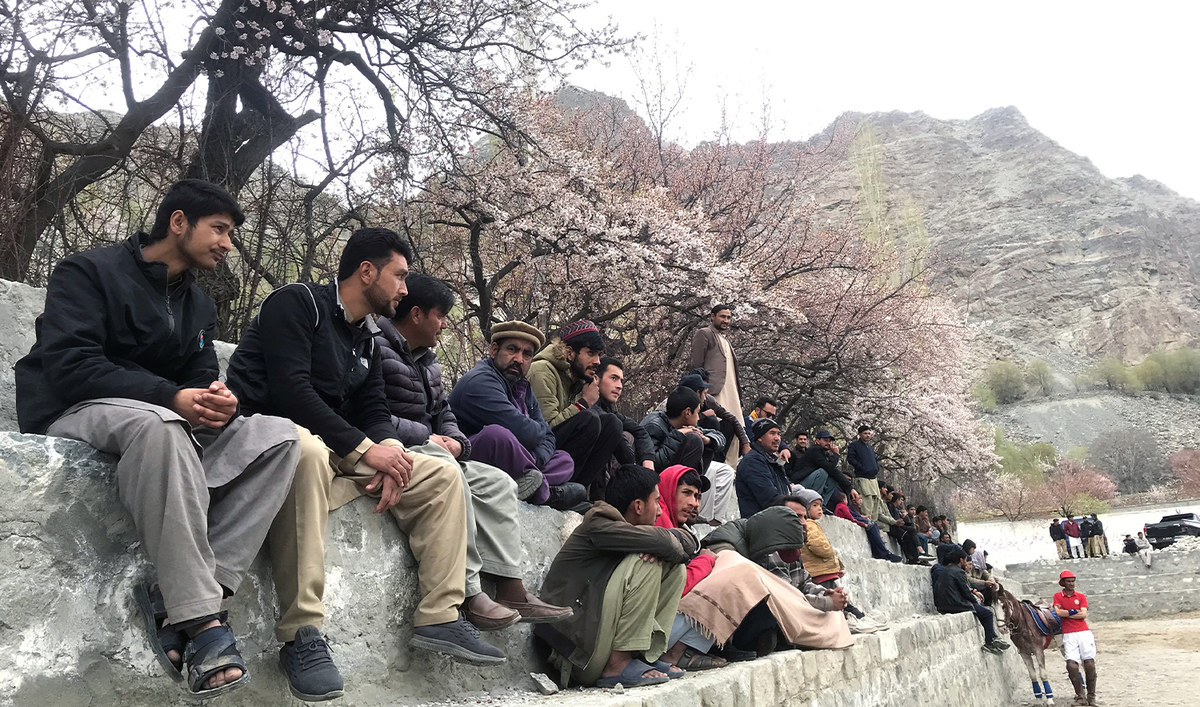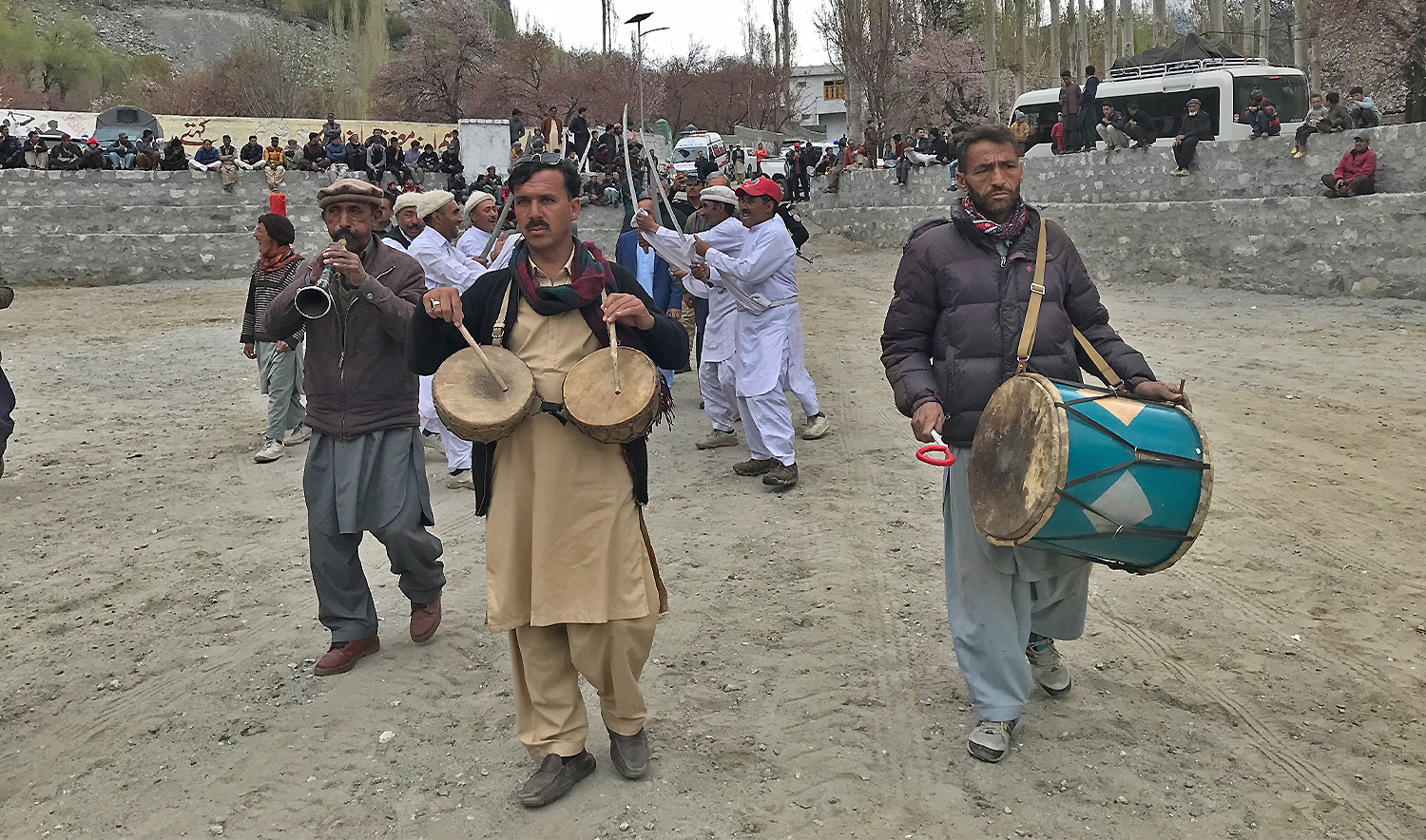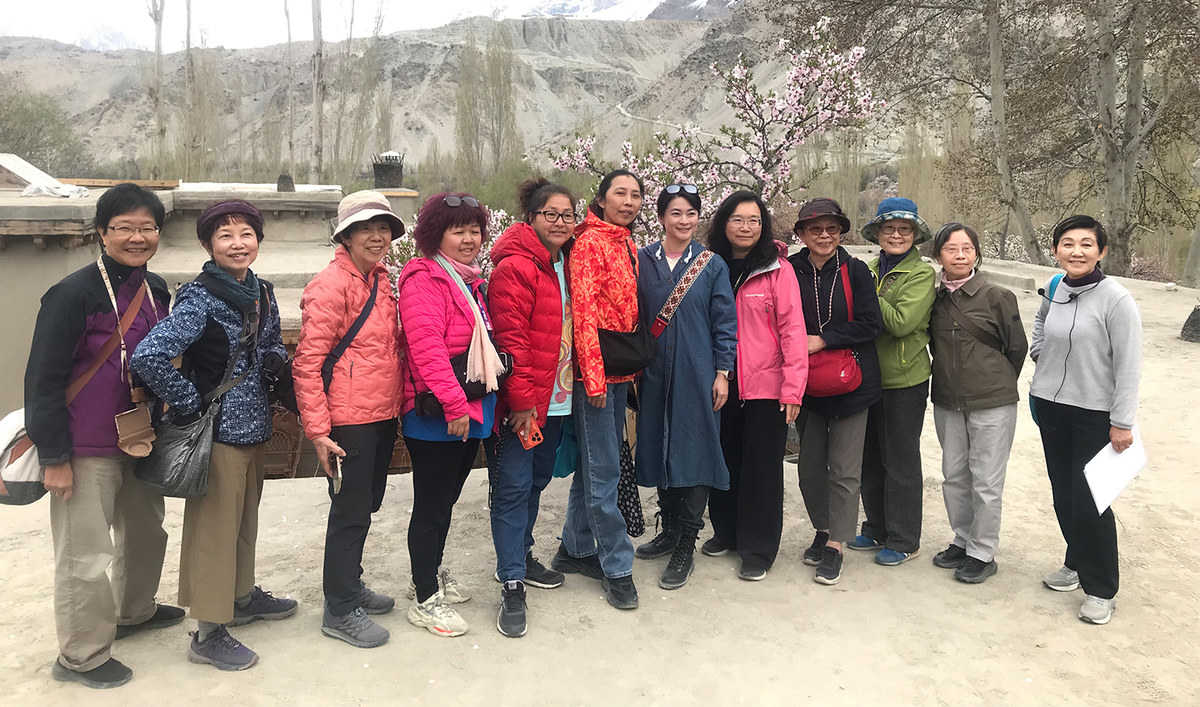KARACHI: Pakistan has initiated discussions with the IMF over a new multi-billion dollar loan agreement to support its economic reform program, its new finance minister told AFP on Monday, during a visit to Washington for spring meetings organized by the International Monetary Fund and World Bank.
An ongoing nine-month, $3 billion loan program with the IMF designed to tackle a balance-of-payments crisis which brought Pakistan to the brink of default last summer will expire this month.
With the final $1.1 billion tranche of that deal likely to be approved later this month, Pakistan has begun negotiations for a new multi-year IMF loan program worth “billions” of dollars, Finance Minister Muhammad Aurangzeb said during an interview in Washington.
“The market confidence, the market sentiment is in much, much better shape this fiscal year,” said Aurangzeb, a former banker who took up his post last month.
“It’s really for that purpose that, during the course of this week, we have initiated the discussion with the Fund to get into a larger and an extended program,” he added.
An IMF spokesperson told AFP that the Fund is “currently focused on the completion of the current Stand-by Agreement program,” referring to the ongoing nine-month program scheduled for completion shortly.
“The new government has expressed interest in a new program, and Fund staff stands ready to engage in initial discussions on a successor program,” the spokesperson added.
During his visit to Washington, Aurangzeb will also attend the spring meetings of the IMF and World Bank, which kick off in earnest Tuesday, with two clear objectives: to help countries combat climate change, and to assist the world’s most indebted nations.
The meetings, which bring central bankers together with finance and development ministers, academics, and representatives from the private sector and civil society to discuss the state of the global economy, will kick off with the IMF’s publication of its updated World Economic Outlook.
“US VS. CHINA”
Pakistan held elections in February this year which were marred by allegations of rigging, with opposition leader Imran Khan jailed and barred from running, and his Pakistan Tehreek-e-Insaf (PTI) party subject to a crackdown.
The shaky coalition that emerged, led by Shehbaz Sharif, is now tasked with engineering an economic turnaround by implementing a raft of unpopular belt-tightening measures.
“I do think that we will at least be requesting for a three year program,” Aurangzeb said. “Because that’s what we need, as I see it, to help execute the structural reform agenda.”
“By the time we get to the second or third week of May, I do think we’ll start getting into the contours of that discussion,” he added.
Pakistan has close economic ties to both the United States and China, which has put it in a tricky position as the two countries have embarked upon a costly trade war.
“From our perspective it has to be an and-and discussion,” Aurangzeb said when asked how the Sharif government plans to conduct its trading relationships with the world’s two largest economies.
“[The] US is our largest trading partner, and it has always supported us, always helped us in terms of the investments,” he said. “So that is always going to be a very, very critical relationship for Pakistan.”
“On the other side, a lot of investment, especially in infrastructure, came through CPEC,” he said, referring to the roughly 1,860-mile-long China-Pakistan Economic Corridor designed to give China access to the Arabian Sea.
Aurangzeb said there was a “very good opportunity” for Pakistan to play a similar role in the trade war as countries like Vietnam, which has been able to dramatically boost its exports to the US following the imposition of tariffs on some Chinese goods.
“We have already a few examples of that already working,” he said. “But what we need to do is to really scale it up.”
As part of the structural reform program agreed to by the previous government, Pakistan is in the middle of a privatization drive to sell off its poorly-performing state-owned enterprises (SOEs).
The first SOE on the list is Pakistan International Airlines, the country’s flag carrier.
“We will get to know in the next month or so with respect to interest from prospective bidders,” Aurangzeb said.
“Our desire is to go through with that privatization and take it through the finishing line by the end of June,” he added.
If the PIA privatization goes well for the government, other companies could soon follow.
“We’re creating an entire pipeline,” he said, adding: “Over the next couple of years we want to really accelerate that.”
“MEETINGS WITH BUSINESS COMMUNITY”
In a meeting with members of the Pakistan Business Council (USPBC) on the sidelines of the IMF and World Bank spring meetings, the finance minister appreciated the important role of the US corporate sector in strengthening Pak-US economic ties.
“Despite the challenges, the government was committed to implementing difficult but necessary reforms to ensure long-term economic growth and macro-economic stability,” Aurangzeb said.
He highlighted key initiatives, including the Investment Policy 2023, aimed at attracting more foreign investments to enhance investor confidence and streamline project implementation, particularly in priority sectors such as agriculture, IT, energy, minerals and mining.
“The new policy would simplify business regulations, provide foreign investors freedom to repatriate their profits abroad in their own currency and receive special protection,” the finance minister informed USPBC.
“He also apprised them of the government’s efforts to digitalize the economy and expand the tax base to ensure sustainable economic growth.”
Separately, in a meeting with the secretary general of the Climate Vulnerable Forum (CVF) Mohamed Nasheed, who is a former president of the Maldives, Aurangzeb highlighted Pakistan’s vulnerability to climate-induced disasters, drawing attention to 2022 floods that affected 33 million people and caused losses of approximately $15.2 billion.
“He emphasized the need for developed economies to scale up their efforts to provide additional financing, technology transfer, and capacity-building assistance to developing countries, including Pakistan,” a statement from the finance ministry said.
Aurangzeb also highlighted Pakistan’s pro-active role in mobilizing global support for a Loss and Damage Fund at COP 28.
Aurangzeb also met influential Pakistani American businessmen and tech entrepreneurs and lauded the important role of the Pakistani diaspora in the socio-economic development of Pakistan, calling them “bridge-builders in deepening trade and investment ties between Pakistan and the United States.”
The Minister highlighted various initiatives taken by the government to improve business-friendly environment and attract foreign investment in Pakistan and specifically highlighted the potential of Pakistan in the IT sector as a host to a community of over a million freelancers, ranked third globally in the freelance market and annually producing over 75,000 IT graduates from 250+ recognized universities.
The finance minister also attended a seminar on “Opportunities and Challenges for the Pakistani Economy through 2024 and Beyond” hosted by the Atlantic Council.
In his address, he highlighted the prevailing economic conditions in Pakistan and measures being taken by the government to put the economy on a higher growth trajectory by facilitating exports, increasing remittances, expanding the tax-base, improving ease of doing business, digitalizing economy and attracting FDI into the country.
“Positive trends in the industrial activity, better agriculture outlook, and improvements in the Composite Leading Indicators (CLI) of Pakistan’s major export markets were all signs that the economy was on a recovery path,” Aurangzeb said, adding that the implementation of reforms under the 9th IMF Stand-By Agreement (SBA) had provided Pakistan with much-needed macro-economic stability.
He said Pakistan was prioritizing investment in key areas of agriculture, IT, mining and energy to enhance productivity and ensure sustainable growth and invited international stakeholders to become partners in Pakistan’s journey toward economic prosperity and development.
– With inputs from AFP




